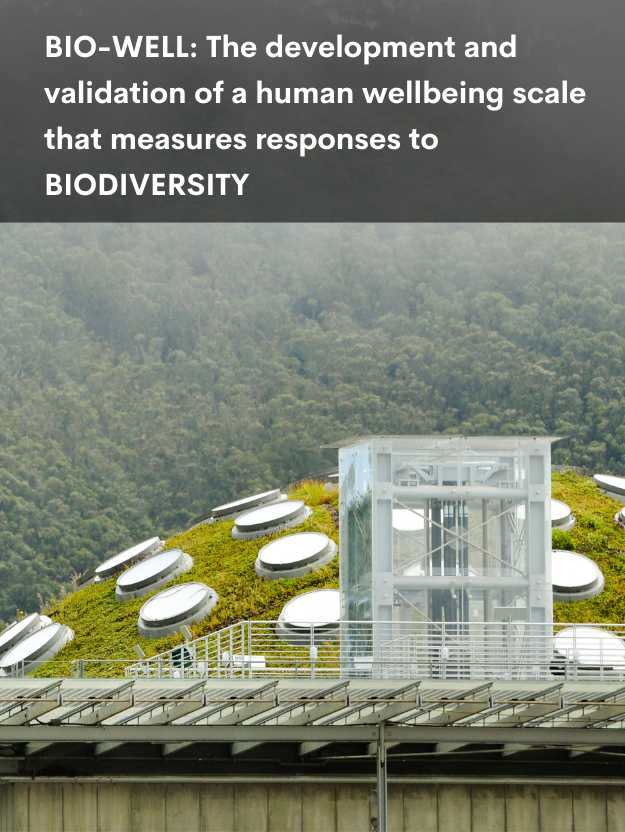BIO-WELL: The development and validation of a human wellbeing scale that measures responses to biodiversity

The evidence linking nature and human wellbeing is compelling. Yet, there is a lack of understanding regarding which aspects of nature contribute to wellbeing and the role biodiversity plays specifically. This knowledge gap hampers our ability to understand and manage natural environments from an ecological perspective to improve human wellbeing. To investigate the impact of biodiversity on wellbeing in a range of contexts, there is a need for a psychometric scale. Here, we present BIO-WELL, a novel, reliable and validated self-reported wellbeing scale designed to investigate the biodiversity-health/wellbeing relationship. We describe the conceptual foundation, empirical development and psychometric evaluation of BIO-WELL. We detail five studies, involving 2962 participants, describing the steps taken in the scale’s development: (1) a series of deliberative workshops to identify how people conceptualise biodiversity metrics and attributes, and the impact these have on wellbeing; (2) an in-depth qualitative analysis of biodiversity-focused stem questions and wellbeing response items, assessed through an expert panel, focus groups and cognitive interviewing techniques; (3) combined methods associated with classical test theory (e.g. factor analysis) and more modern measurement approaches drawn from item response theory to develop the scale; (4) a confirmatory factor analysis alongside classical test and item response theories to evaluate the scale; and (5) scale validation including discriminant/convergent, concurrent and predictive. The studies demonstrate that BIO-WELL is a valid and reliable scale with strong psychometric properties. We discuss ways it could be applied in research, policy and practice to further develop our conceptual and empirical understanding of the biodiversity-health relationship and assess the effectiveness of related interventions.





